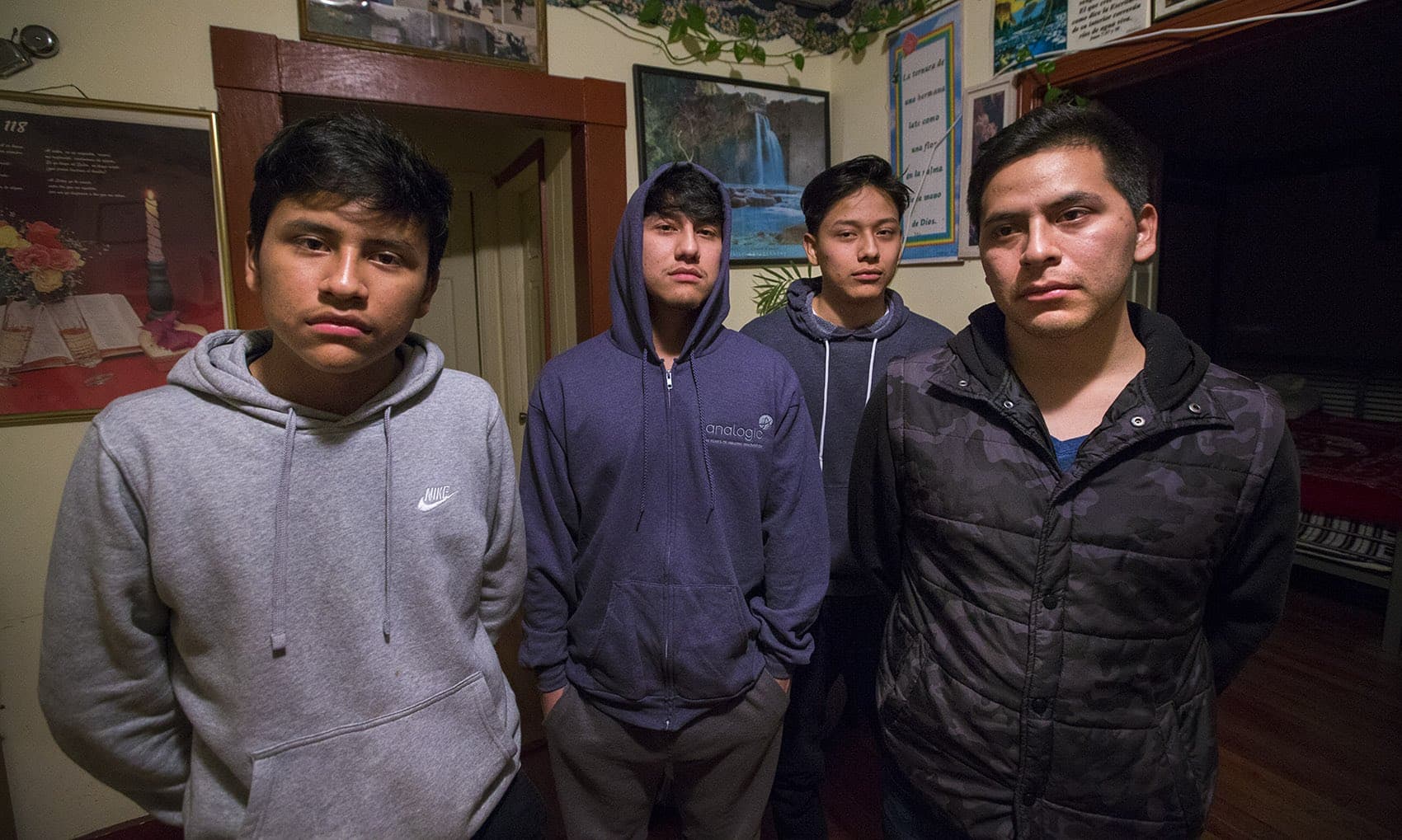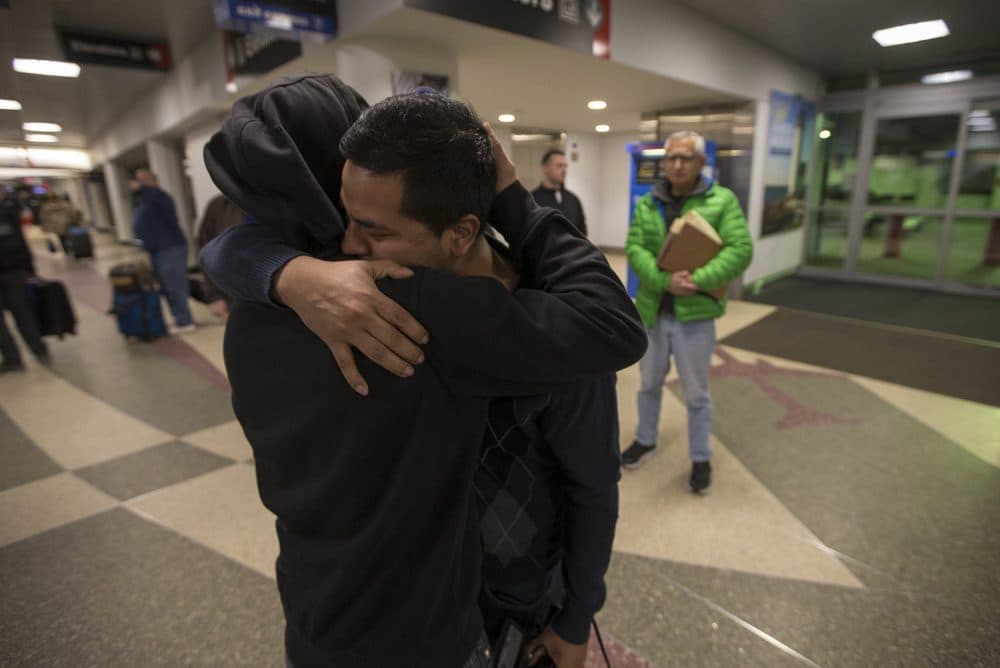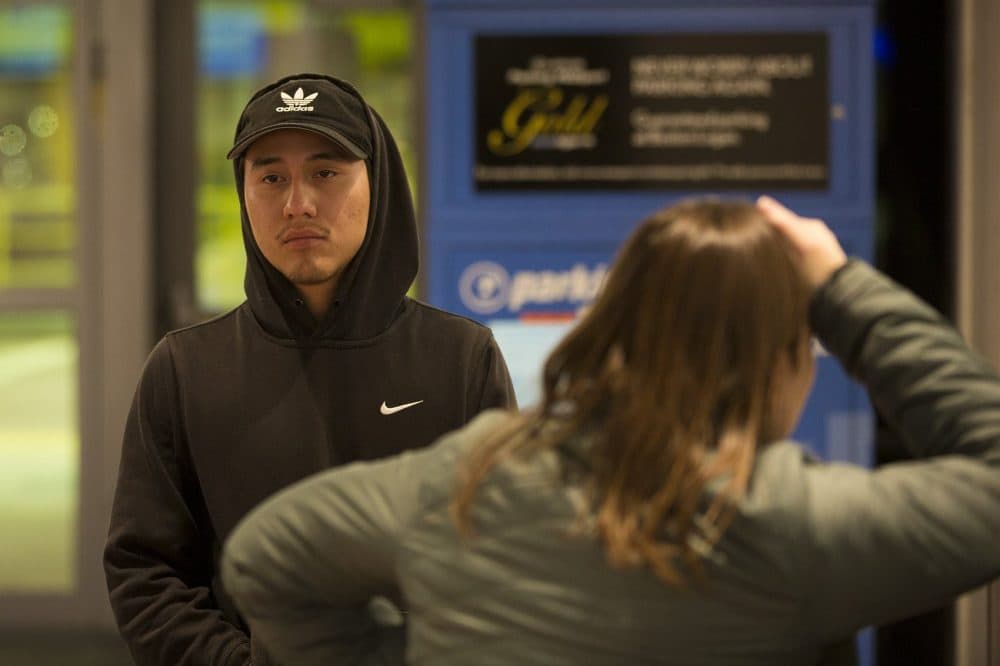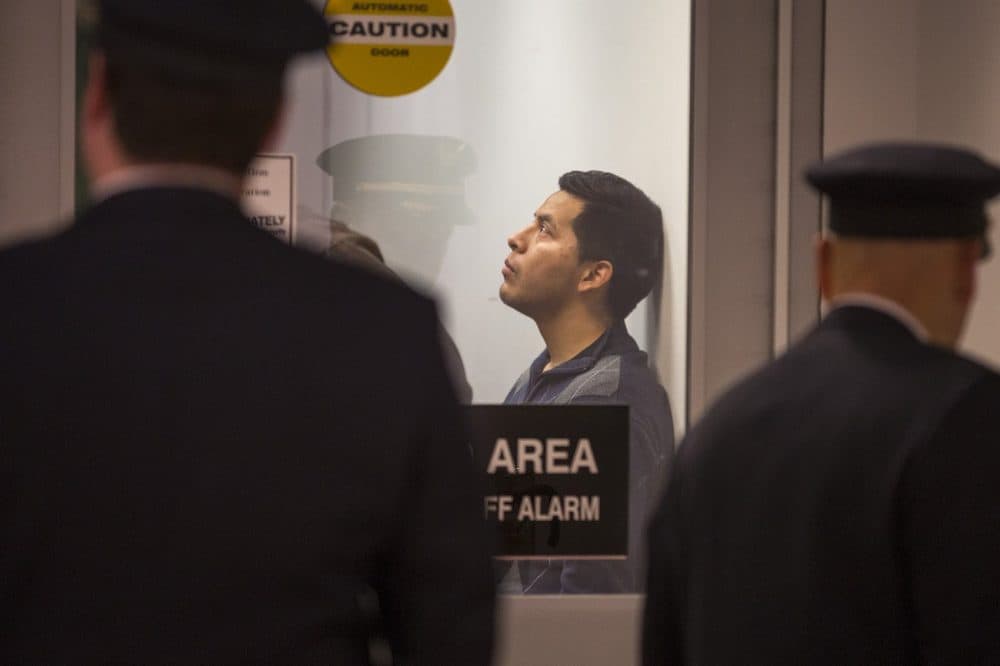Advertisement
'They're Taking Them One By One': A Family Divided By Immigration Status

Saying goodbye at Logan Airport is a familiar, if painful, scene for the four Macario brothers. Just two years ago, they said goodbye to their father when he was deported back to his native Guatemala.
And early Wednesday morning, the oldest brother, Isidro, faced the same fate.
Accompanied by federal immigration officers through airport security, Isidro was bound for deportation back to Guatemala, where he was born.
"I love you," younger brother Erwin said to Isidro.
This is a family separated, one by one, along strict lines: their immigration status.

Just a few days ago, the four Macario brothers were looking at old school photos hanging on the wall in their Lynn apartment, and poking fun at the haircut their dad gave one of them back in the third grade. There was a plastic pitcher of pink Kool-Aid on the kitchen table and a Bible sitting on top of the microwave.
Erwin, 21, Anthony, 18, and Saul, 16, all U.S.-born citizens, were each wearing some variation of sweatpants and sweatshirts as they gathered in the kitchen. They all knew this was likely one of their last nights together with 27-year-old Isidro, who, after several years of receiving stays of his removal from the United States, had run out of options.
"You know, it didn't start yesterday," Isidro said. "It's been going on for almost eight years straight."
But worrying about the future is just a part of life for his family, he said. They're used to receiving regular doses of anxiety, usually in the form of correspondence from the U.S. Department of Homeland Security and usually arriving by mail around Christmastime.
Advertisement

"I remember most of the time we are in the living room receiving letters saying that our parents have to leave the country and instead of, you know, having a table ready for the family at Christmas, we get these letters or bad news. It always happens," he said.
Isidro was born in Guatemala and came to the U.S. when he was 13. He went to high school in Lynn and then worked mostly odd jobs, like cleaning offices at night. Shaking his hand you can feel the calluses of a young man who’s weathered plenty of manual labor.
John Mohan, a spokesman for U.S. Immigration and Customs Enforcement, said in a statement that he could not comment on the details of Isidro Macario's deportation case but confirmed he was scheduled for removal. ICE officials confirmed Wednesday Isidro was on the plane to Guatemala.

Isidro has applied for different legal statuses but criminal charges, stemming from what his lawyer calls a misunderstanding a few years ago, stood in his way. Those charges were dismissed in 2013, according to court documents, and he has no criminal convictions.
"You know, it's very tough for myself and also for my family because we've been struggling with this for so many years," he said. "And instead of getting better, it keeps getting worse and worse and worse and we just, nobody understands, probably, our pain."
Isidro is the oldest brother who also doubles as a parent to his younger brothers. Their father was deported in 2016 after losing an asylum case, in part because of a 1995 OUI arrest. And their mother, Merida, is in the U.S. without documentation. She also has a final order of removal from the country. For nearly two months she's been seeking sanctuary in a church in Greater Boston. We've agreed not to use her full name and not to disclose her location because she fears for her safety.
Merida said being separated from her sons makes her ill. But for now, she believes living in the church is her safest option. Speaking in Spanish, she said she's doing what she believes is best for her family.
"I don't want to leave my children. I'm sad but I'm also OK here, and I'm in good hands," Merida said, fighting back tears. "I miss my children and I want to be with them because they need me and I need them too."
This type of family upheaval is increasing, according to some immigration advocates, especially in families like the Macarios, where different members hold different immigration statuses.
Eva Millona, director of the Massachusetts Immigrant and Refugee Advocacy Coalition, says mixed-status households are common both across the country and here in Massachusetts, where there are nearly 1 million foreign-born residents, half of whom are naturalized citizens.
"It's a huge concern emotionally but also practically because, you know, these individuals are part of the workforce, they are consumers," Millona said. "So, given the fact that they're in limbo, they don't know if they should lease an apartment or buy a car. It's really problematic and widespread."
President Trump's shift in immigration enforcement priorities, the debate over the future of the Deferred Action for Childhood Arrivals (DACA) program and the elimination of Temporary Protected Status for some countries have all created cavernous unknowns.
The uncertainty facing these mixed-status families from one day to the next can feel like whiplash. It's a feeling that 16-year-old Saul said he can relate to.
"What I see, [immigration officials are] taking them one by one, that's how I see it," he said. "First it was my dad, then my mom and my brother."
With the hood of his sweatshirt pulled down low over his forehead and his hair just slightly in his eyes, 21-year-old Erwin said he's been thinking a lot about what it would mean to be the oldest in the house.
He said he'll get a second job to help make up for the missing income and keep what's left of his family intact. But caring for his brothers is his top priority.
"It's a lot to take in, to take care of my little brothers, it's going to be a lot of responsibility," he said, "but at the same time it's gonna help me mature and if anything, you know, I got them and I'm gonna push through just for them."
This article was originally published on February 28, 2018.
This segment aired on February 28, 2018.
